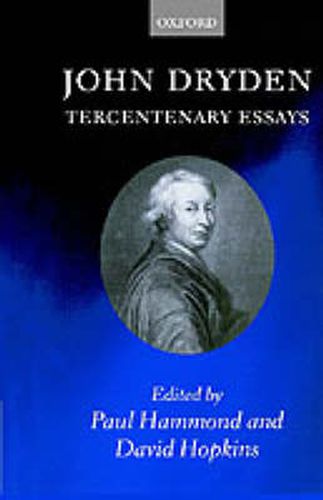Readings Newsletter
Become a Readings Member to make your shopping experience even easier.
Sign in or sign up for free!
You’re not far away from qualifying for FREE standard shipping within Australia
You’ve qualified for FREE standard shipping within Australia
The cart is loading…






This volume is designed to celebrate and re-assess the work of John Dryden (1631-1700) in the tercentenary year of his death. It assembles specially-commissioned essays by an international team of scholars who address Dryden’s political writing, drama, and translations, his literary collaborations, contemporary reputation, and posthumous reception. Much of Dryden’s work was written in response to contemporary events and issues, and several of the essays in this volume discuss the personal and public circumstances in which his works were composed and received, exploring his responses to popular politics, and his relations with Congreve, Milton, Purcell, and Shadwell. But Dryden’s intellectual and imaginative world was also shaped by the work of his literary predecessors, and so the collection charts his creative engagement with classical poetry, especially Homer and Virgil. Other essays attend to his poetic self-representation, his philosophical vision, and the problem of editing Dryden’s poetry for a modern readership. The collection as a whole presents him as a writer not only for an age, but for all time.
$9.00 standard shipping within Australia
FREE standard shipping within Australia for orders over $100.00
Express & International shipping calculated at checkout
This volume is designed to celebrate and re-assess the work of John Dryden (1631-1700) in the tercentenary year of his death. It assembles specially-commissioned essays by an international team of scholars who address Dryden’s political writing, drama, and translations, his literary collaborations, contemporary reputation, and posthumous reception. Much of Dryden’s work was written in response to contemporary events and issues, and several of the essays in this volume discuss the personal and public circumstances in which his works were composed and received, exploring his responses to popular politics, and his relations with Congreve, Milton, Purcell, and Shadwell. But Dryden’s intellectual and imaginative world was also shaped by the work of his literary predecessors, and so the collection charts his creative engagement with classical poetry, especially Homer and Virgil. Other essays attend to his poetic self-representation, his philosophical vision, and the problem of editing Dryden’s poetry for a modern readership. The collection as a whole presents him as a writer not only for an age, but for all time.